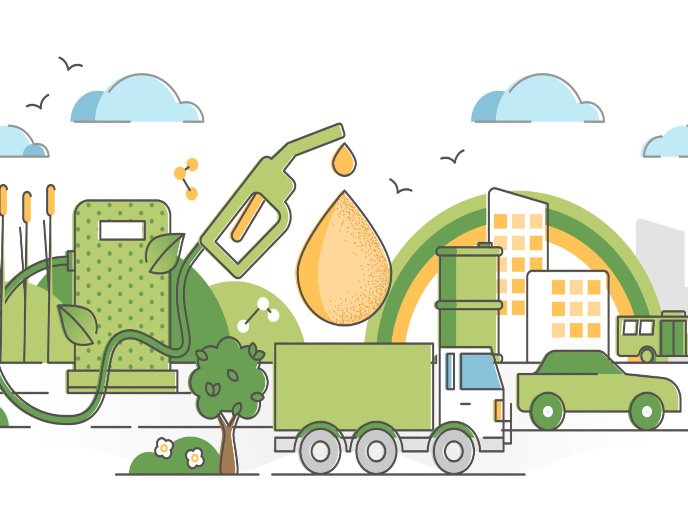Making fuel from straw for a better climate
Specialty chemical company Clariant has produced the first commercial cellulosic ethanol at its plant in Podari, Romania, with financial support from the EU-funded SUNLIQUID and LIGNOFLAG projects. The flagship plant will be processing locally sourced agricultural residues to produce around 50 000 t of cellulosic ethanol each year with the help of its sunliquid® technology. The entire production’s offtake has been contracted to leading global energy company Shell in a multi-year agreement. In the first half of 2022, the plant underwent an exhaustive commissioning process, resulting in the successful start of production. “Protecting the climate is a central part of our purpose ‘Greater chemistry – between people and planet’,” remarked Clariant’s CEO Conrad Keijzer in a news item posted on the company’s website. “Biofuels and biochemicals made from agricultural waste play a crucial role, since they reduce greenhouse gas emissions. To establish their use more widely, their commercial production and availability must be increased rapidly, which is why the successful start of our sunliquid® plant in Podari is so vital.” An estimated 250 000 t of straw will be processed to produce 50 000 t of second-generation biofuel. As reported in the news item, the resulting cellulosic ethanol “can be applied as a drop-in solution for fuel blending but also offers further downstream application opportunities for sustainable aviation fuel and bio-based chemicals.”
Solving the problem of food vs fuel
Biofuels are already being produced around the world from edible plants such as canola, corn and cereals, sparking the debate on whether arable land should be used for food or fuel. Providing a solution to this issue, Clariant’s sunliquid® process uses only locally available agricultural residues and converts the not easily accessible sugar in straw into biofuel efficiently and economically. The advantages of this process include reduced CO2 emissions, 50 % higher bioethanol yield and energy self-sufficiency. “The advanced biofuel produced by the sunliquid® technology process supports the decarbonization of the transport sector by providing up to 120 % CO2 savings compared to fossil fuel,” notes Clariant’s Head of Business Line Biofuels and Derivatives Christian Librera. “It is particularly encouraging to see that despite the global pandemic, we have successfully managed to start production in our flagship sunliquid® cellulosic ethanol plant on schedule. This proves that Clariant’s technology is commercially deployable and accelerates our licensing business strategy. I would like to express my sincere thanks to all colleagues and partners involved.” Shell Trading and Supply General Manager for Low-Carbon Fuels Geoff Mansfield highlights the important role that biofuels play in transitioning to a net-zero emissions future: “Low-carbon fuels are essential for helping our customers to decarbonize their businesses.” Clariant is the coordinator of both the SUNLIQUID (sunliquid® large scale demonstration plant for the production of cellulosic ethanol) and LIGNOFLAG (Commercial flagship plant for bioethanol production involving a bio-based value chain built on lignocellulosic feedstock) projects. The company has currently signed contracts with over 300 local farmers to ensure the supply of the necessary feedstock. For more information, please see: SUNLIQUID project website LIGNOFLAG project website
Keywords
SUNLIQUID, LIGNOFLAG, ethanol, plant, cellulosic ethanol, sunliquid, biofuel, straw

